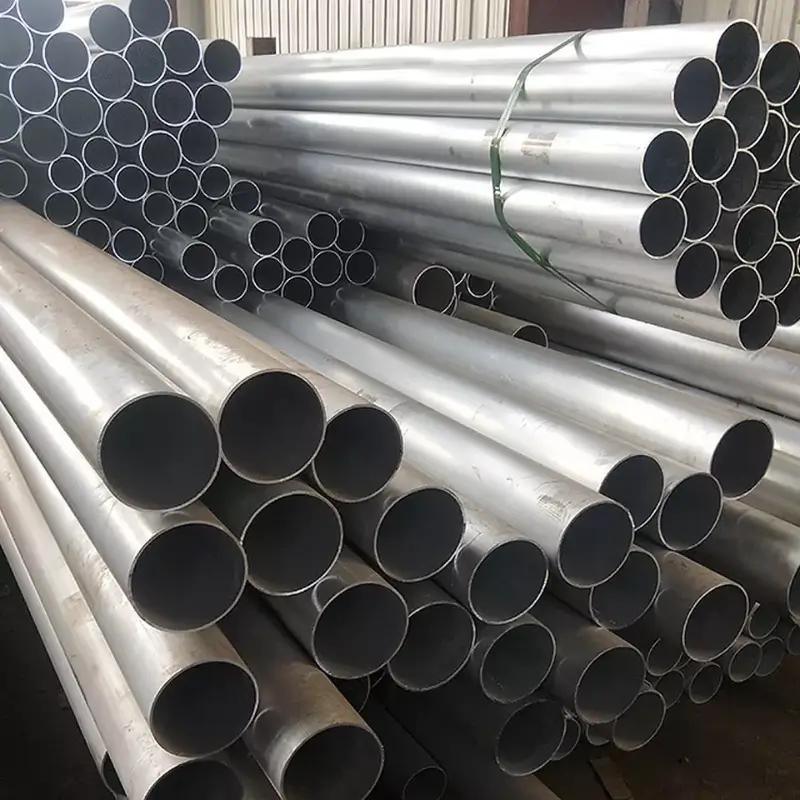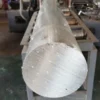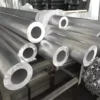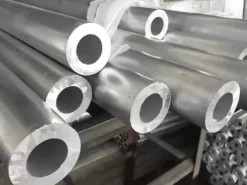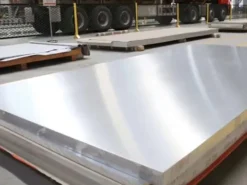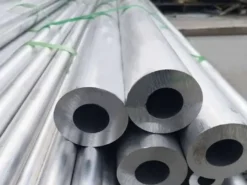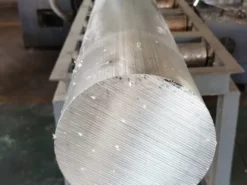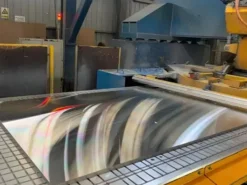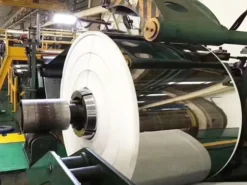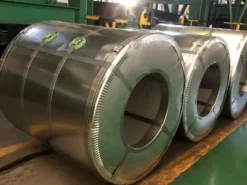Aluminum tube is a type of non-ferrous metal tube, which refers to a metal tube like material that is extruded and processed into a hollow longitudinal length using pure aluminum or aluminum alloy.
There can be one or more closed through-holes with uniform wall thickness and cross-section, delivered in a straight or coiled shape. Widely used in industries such as automobiles, ships, aerospace, aviation, electrical appliances, agriculture, electromechanical, home furnishings, etc.
Aluminum pipes are mainly divided into the following types:
Divided by appearance: square tube, circular tube, patterned tube, irregular tube, and universal aluminum tube.
Divided by extrusion method: seamless aluminum pipe and ordinary extrusion pipe
According to precision, it is divided into ordinary aluminum pipes and precision aluminum pipes. Precision aluminum pipes generally need to be processed after extrusion, such as cold drawing, precision drawing, and rolling
Divided by thickness: ordinary aluminum pipe and thin-walled aluminum pipe
Performance: Corrosion resistant, lightweight.
Characteristics:
It is a high-strength hard aluminum that can undergo heat treatment and strengthening. It has moderate plasticity under annealing, hard quenching, and hot conditions, and good spot welding weldability. When using gas welding and argon arc welding, aluminum pipes tend to form intergranular cracks; After quenching and cold work hardening, the machinability of aluminum pipes is still good, but it is poor in the annealed state. The corrosion resistance is not high, and anodizing and painting methods or adding an aluminum coating on the surface are often used to improve the corrosion resistance. It can also be used as a mold material.
Advantages of aluminum tubes:
1. Welding Technology Advantages: The welding technology for thin-walled copper aluminum pipes suitable for industrial production is known as a world-class problem and a key technology for replacing copper with aluminum in the connecting pipes of air conditioners.
2. Service life advantage: From the perspective of the inner wall of the aluminum tube, due to the absence of moisture in the refrigerant, corrosion will not occur on the inner wall of the copper aluminum connecting tube.
3. Energy saving advantages: The lower the heat transfer efficiency of the connecting pipeline between the indoor and outdoor units of the air conditioner, the more energy-saving it is. In other words, the better the insulation effect, the more energy-saving it is.
4. Excellent bending performance, easy to install and move
Surface treatment:
Chemical treatment: oxidation, electrophoretic coating, fluorocarbon spraying, powder spraying, wood grain transfer printing
Mechanical treatment method: mechanical drawing, mechanical polishing, sandblasting
Purpose:
Aluminum tubes are widely used in various industries, such as automobiles, ships, aerospace, aviation, electrical appliances, agriculture, electromechanical, home, etc. Aluminum tubes are already ubiquitous in our lives.
There are also many varieties of aluminum pipes, including square pipes, round pipes, elliptical pipes, and lean pipes. Different aluminum pipes have different functions. In recent years, aluminum alloy lean pipes have been widely used. Aluminum pipes are lighter than steel pipes, and are corrosion-resistant, less prone to oxidation, and have good formability. They can be customized for special shaped aluminum pipes. Compared to steel pipes, aluminum pipes have only one drawback, which is that their hardness is not as high as steel pipes. Aluminum pipes without artificial aging are relatively soft and suitable for bending, and many equipment requires the installation of accessories such as bends. Steel pipes cannot be bent, and plastic fittings are not corrosion-resistant, so aluminum pipes have become an excellent choice. If the hardness does not meet the requirements, it can be hardened after bending.

